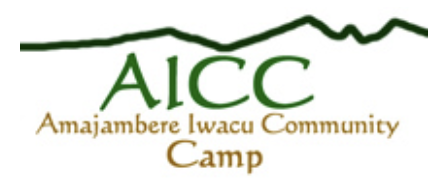Ecotourism
Uganda is rich in natural resources which makes the ’’Peal of Africa’’. In 2012, Lonely Planet selected Uganda as the best country to visit. Isn’t that great! In the same way, Kisoro is one of the best places to visit in Uganda because of it’s spectacular views not forgetting it’s home for the mountain gorillas!
Tourism activities you can do while in Uganda.
- Gorilla trekking in Bwindi National Park
- Chimp tours in Kibale National Park
- Golden monkey trekking in Mgahinga Gorilla National Park
- Spoting wild animals such as; Lions, Buffulos, Elephants, Hippos, Crocodiles, Uganda Kobs, Zebras, Giraffe in Queen Elizabeth National Park.
- Sighting hundreds of bird species, natural vegetation in the intact rain forests•Volcano hiking. The most of it all, there is a unique culture of people who welcome visitors…
- While in Kisoro, don’t miss visiting Lake Mutanda where you will see lots of birds and do some canoeing.
AICC works closely with two local tour agents: Virunga Adventure Tours and Bamboo Ecotours.
If you are interested in any of the tour activities, contact these companies for more information and bookings.
Mutanda Eco Comminuty Centre (M.E.E.C)
Mutanda Eco Community Centre (M.E.C.C) is an eco-tourism centre being developed by MCDO in partnership with MbriMbiri Foundation at south shores of Lake Mutanda.
Once the construction is completed, the M.E.C.C Project will provide alternatives to various visitors who want to carry out community based activities that generate income to the local communities. The main attractions for visitors in Kisoro District are the famous Mountain Gorillas. However, the communities want to provide more alternatives for tourists such as birding, canoeing, snake visits, swimming, handcrafts, and entertainment among others. The proposed activities on Lake Mutanda will provide visitors with great experience and add value for conservation of natural resources in and around Lake Mutanda.
Currently, some activities can be carried out at the site such as canoeing, bird watching, snake visit, swimming lessons, medicinal plants and other biodiversity identification. Facilities to be provided include limited accommodation, ground for do it yourself tents, meals with order. One may inquire for any other activity.
(a) Some of the facilities already in place at M.E.C.C
(i) Accommodation and food
The Education center can now offer a variety of dishes to the guests. The food stuffs are bought from the local neighborhood so that they also share on this revenue.
(ii) Suite Camp
The suite camp consists of a structure of a platform on pillars and a roof. The platform is lifted from the ground and provides a floor for a number of tents. The tents are provided by the centre, and work like a simple version of lodging, or an advanced way of tenting where you will not have to bring your own tent. Here one is protected from the ground and from the rain, while keeping the feeling of camping. In future the roof will be covered with solar panels, gathering energy from the sun. The roof will also protect the suite camp from different weather conditions. The roof can also provide smaller windmills to compensate for days with less sun. The suit camp is already in place and it has three tents which can accommodate six people.
(iii) Cottage/ Banda
We have in place 4 cabin Bandas that accommodate 10 pax.
(iv) Dormitory with 2 bunk beds which can accommodate 4 pax.
(v) Camping site
The centre also offers ample camping place for those guests who do come with their own tents. The prices for such facilities are affordable and can be accessed on M.E.C.C information board at the centre or one can ask the staff members at the centre.
The Batwa Trail Adventure
Who are the Batwa
The Batwa are a historically marginalized community of pygmies who live in the outskirts of Bwindi and Mgahinga gorilla national parks. The Batwa ancestral homes were forests, which got dismantled in the early 1990s when Bwindi and Mgahinga were officially recognized as conservation parks. The Batwa face social and economic hardships but with the rise of cultural tourism, there is hope that the lives of the Batwa will improve for the better.
The Batwa Trail
The Batwa Trail was established by Uganda Wildlife Authority in collaboration with other development partners as a means to boost economic opportunities for the Batwa through tourism. The tour rests on show casing the life the Batwa lived before they left the forests. During the half day tour, the Batwa demonstrate their hunting skills, construction of huts and fire making. The tour ends with a traditional “sorrow” song performed by Batwa women at the Garama cave, which used to be the royal palace for the Batwa chiefs. The tour can be booked at the Amajambere Camp.

Share This Page